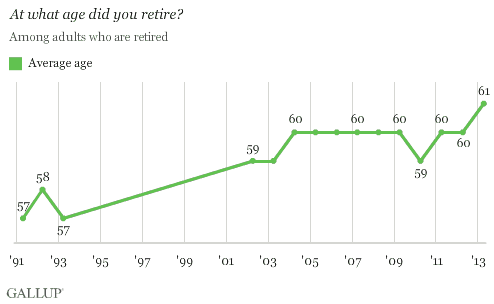Midpack
Give me a museum and I'll fill it. (Picasso) Give me a forum ...
Just thought it was a nice concise summary from a book** I am currently reading. In case you find yourself consulting someone for whom this might apply. ***
*** The Center for Retirement Research figures fewer than half of American workers are on savings path for a comfortable retirement at age 65. But if workers wait until age 70, 86 percent should be financially secure.
- Assuming a married couple in their early 60's earning a household income of $100,000 pretax annually.
- They'll need $66,000 a year after taxes to replace 80 percent of their preretirement income.
- If both retire at age 62, they would have received more than $25,000 in annual total Social Security benefits. They would need a portfolio of at least $891,000 to generate the income they wanted for their normal life expectancy.
- But if they wait until age 66, their Social Security benefits go up and the time they need to live off savings shrinks. In that case, $552,000 in savings is enough to ensure their lifestyle.
- Retire at age 70? A portfolio worth $263,000 will do it.
*** The Center for Retirement Research figures fewer than half of American workers are on savings path for a comfortable retirement at age 65. But if workers wait until age 70, 86 percent should be financially secure.
Attachments
Last edited:



